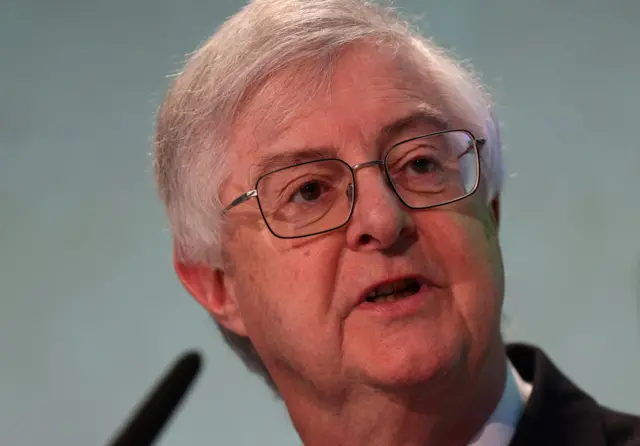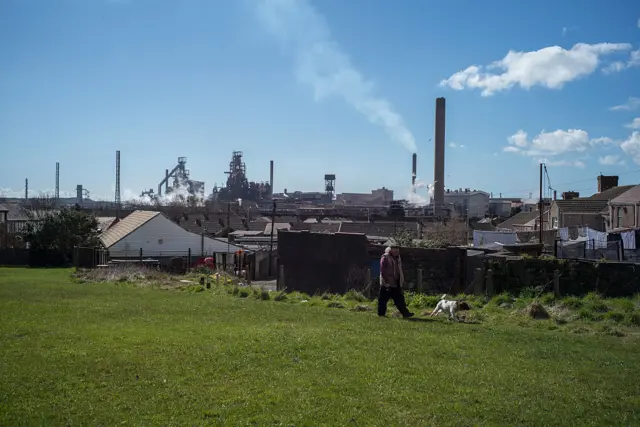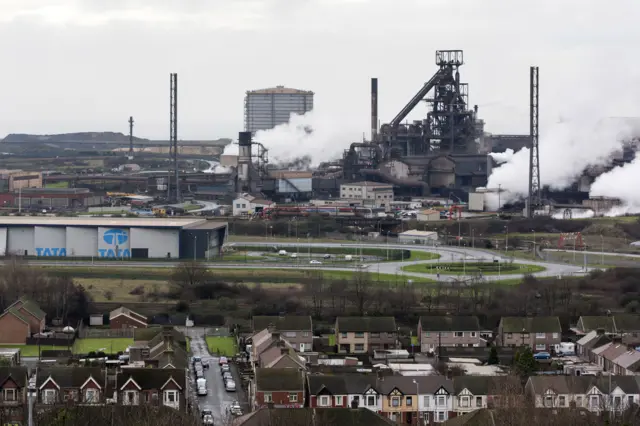New furnaces will leave UK dependent on foreign steel - Kinnockpublished at 16:09 GMT 18 January 2024
 Image source, Getty Images
Image source, Getty ImagesStephen Kinnock, Labour MP for Aberavon, home of the Port Talbot steelworks, has urged Tata Steel and the UK government to rethink their approach and adopt the plan set out by unions to avoid redundancies.
"Tata's decision to follow the Conservative business model of managed decline for British steel making will cause the job losses of 3,000 hard-working men and women," he said.
"By pursuing a narrow electric arc furnace-only model, Tata Steel will be unable to seize the commercial opportunities of the future, while at the same time leaving Britain more dependent on imported steel from countries whose governments won't always have Britain's best interests at heart.
"Tata Steel and the government must rethink their approach and recognise that an exciting and prosperous future for British steel making can be found by adopting the multi-union plan, which will be significantly strengthened by the investment that the Labour has pledged to deliver in government."



